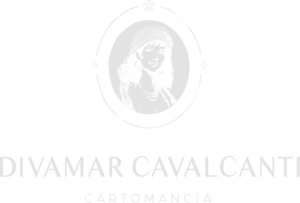We live in an era where instant gratification rules.
We’re constantly bombarded with promises of happiness just a click away: mindfulness apps, miracle diets, wellness products, and social media filled with “perfect lives.” However, as we know, human emotions are far more complex and profound than what these quick-fix solutions suggest.
I, Diva de Faria, psychotherapist and Tarot reader can act as a mediator in your learning process on how the pursuit of instant happiness differs from the transformation offered by the therapeutic process. In this journey, we can also use the Tarot as a powerful therapeutic tool within the path of self-discovery.

The Illusion of Instant Happiness
The nowadays wellness culture has built an almost unattainable ideal: the idea that we must always be happy, and that any “negative” emotion should be avoided at all costs. This feeds the feeling that if we are not in a constant state of well-being, something is wrong with us. This mindset creates unsustainable pressure to “be happy,” often resulting in frustration, anxiety, and emotional emptiness.
As I mentioned in a recent podcast with Kelma Mazziero, this relentless pursuit of immediate happiness not only ignores the emotional complexity that each of us carries, but it’s also dangerous. It creates unrealistic expectations, and instead of relieving suffering, it amplifies feelings of inadequacy.
Therapy: A Path of Self-Knowledge
Unlike the promise of a quick fix, psychotherapy – applying for example, an efficient clinical intervention model like ACT and a number of different therapeutic tools, including the Tarot as a valuable instrument — invites us to explore our emotional reality with fairness and patience. The therapeutic process doesn’t aim to provide constant happiness, but rather deep self-awareness and a healthier relationship with oneself.
When I use tarot in a therapeutic session, the goal is not to predict the future, but to help the client understand what is happening within themselve in the present moment. The cards, in this context, act as symbolic mirrors of our emotions, patterns, and unconscious blockages. They invite us to look inward, and from that reflection, promote authentic transformation.
As I often tell my clients, true happiness is a byproduct of an emotional healing process. And this process requires time, dedication, and the willingness to face our shadows.
Differences Between Instant and Lasting Happiness
We need to distinguish between immediate happiness, which is tied to momentary pleasures, and lasting happiness, which is the result of a deeper process.
Instant happiness is the fulfillment of superficial desires – an immediate “relief” that, once achieved, often leads to emptiness. Lasting happiness, on the other hand, comes from accepting who we are, with all our flaws and vulnerabilities. It’s the building of an inner peace that doesn’t depend on external factors, but on our ability to deal with life’s adversities consciously and compassionately.
In psychotherapy, it’s common to realize that external pursuits don’t fill our emotional voids. And tarot, as a therapeutic tool, helps us uncover these patterns of endless searching, allowing us to find healthier paths to our own fulfillment.
The Importance of Vulnerability
One of the most important points in the therapeutic process, which I often address in my practice, is the acceptance of vulnerability. Wellness culture teaches us that we must avoid “bad” feelings, but true growth occurs when we allow ourselves to feel and explore all of our emotions – including the uncomfortable ones.
Vulnerability, far from being a weakness, is a display of courage. By allowing ourselves to be vulnerable, we create space for transformation. And it’s precisely in this space that the Tarot, when applied through a therapeutic approach, operates: it helps us recognize our fears and insecurities and, in doing so, work on these issues consciously.
Therapy and Tarot: Combining Tools for Self-Discovery
I’m often asked how the Tarot can be integrated into therapeutic practice. The answer is simple: the Tarot is a tool that, when used with an analytical view, can help the client access areas of the unconscious that are often blocked. It doesn’t provide ready-made answers but provokes reflections and new perspectives on how we’re dealing with our emotions.
Unlike the Tarot divinatory reading, which focuses on predicting future events, the therapeutic Tarot approach, centers on the present. It invites the client to look at their current life and understand which patterns are repeating, which blockages are preventing progress, and what can be done to transform their reality.
The Role of the Tarot Reader and the Therapist
In the therapeutic Tarot approach, the tarot reader acts as a facilitator, not as a “seer.” Our role as tarot readers is to help the client reflect on their life and emotions, aiding them in finding answers within themselves rather than seeking external, immediate solutions.
As I often emphasize, psychotherapy doesn’t offer quick answers. It requires time, reflection, and the courage to face one’s shadows. And the Tarot, as a therapeutic tool, is a valuable resource for those on this journey of self-discovery.
Conclusion
The full happiness we seek isn’t a permanent state or something that can be quickly achieved. It’s the result of a continuous process of learning, acceptance, and transformation. And that’s what the therapeutic Tarot approach offers: the opportunity to explore our emotions and patterns deeply, promoting genuine and lasting transformation.
Therefore, when working with the Tarot, whether as a Tarot reader or therapist, remember that the role of the therapeutic Tarot approach goes far beyond predicting events. It allows us to help our clients build a more authentic and meaningful life, where true happiness is built from the inside out.
Note: The above article provides informative insights and is not a substitute for professional therapy or advice. If you’re seeking deeper clarity and guidance through a therapeutic lens, I invite you to take the next step on your journey. Experience the transformative power of a personalized therapeutic reading. Reach out today to schedule a session that will illuminate your path and empower you to navigate life’s challenges with newfound wisdom and resilience. Your journey towards self-discovery and growth starts here: https://tarotcounselordivamar.com/psychotherapy/





